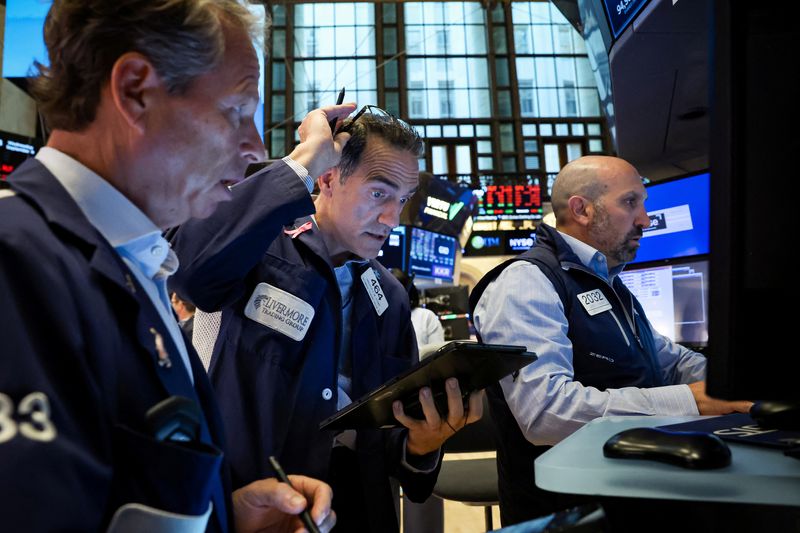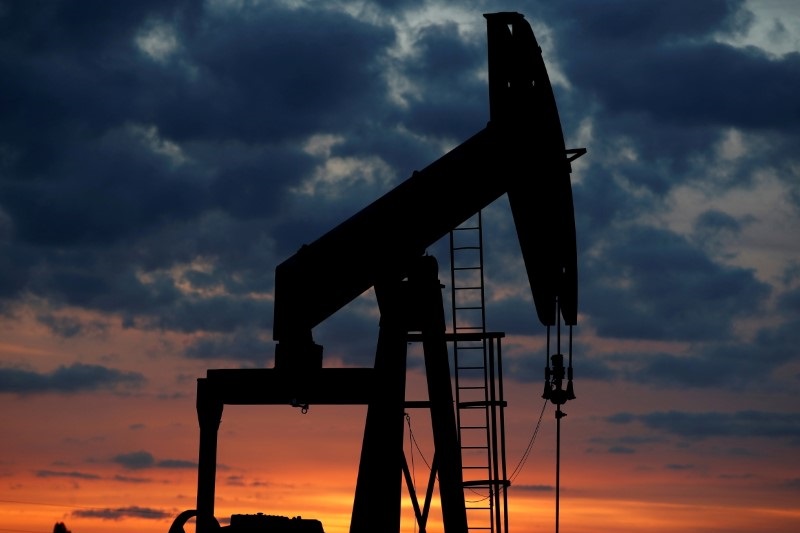By Sinéad Carew and Amanda Cooper
NEW YORK/LONDON (Reuters) -MSCI’s global stock index rose on Friday, while the dollar climbed to its highest level since mid-August, as investors breathed a sigh of relief following a surprisingly strong U.S. labor market report.
Oil prices rose to reach their biggest weekly gain in more than a year on the rising threat of a region-wide war in the Middle East, but gains were limited as US President Joe Biden discouraged Israel from targeting Iranian oil facilities.
Earlier on Friday, the U.S. Bureau of Labor Statistics said 254,000 workers were added to nonfarm payrolls last month, more than economists had estimated. The unemployment rate of 4.1% was below expectations, while job growth was revised upwards in August.
U.S. Treasury yields rose to their highest level since early August as traders abandoned bets that the Federal Reserve will cut rates by half a percentage point next month after the stronger-than-expected jobs report.
Traders now see a probability of about 97% that the Fed will cut rates by just a quarter of a percentage point in November, compared to about 68% on Thursday, CME Group’s (NASDAQ:) FedWatch tool showed.
“The reaction of U.S. stocks to this very strong job growth confirms that investors are most concerned about economic growth,” even if it comes with “hawk-like disruption,” said Julia Hermann, global market strategist at New York Life Investments.
“The fact that the market has been able to absorb this aggressive shift indicates a constructive view of the economic outlook,” Hermann added, pointing to moves in both U.S. Treasuries and equities.
Adding further relief to the U.S. economy was likely Friday’s reopening of ports on the U.S. East Coast and Gulf Coast, after longshoremen and port operators reached a wage deal to resolve the industry’s biggest work stoppage in nearly half a century. However, clearing the freight backlog is expected to take time.
On Wall Street, yields rose 341.16 points, or 0.81%, to 42,352.75, hitting a record high. The advanced rose by 51.13 points, or 0.90%, to 5,751.07 and the advanced rose 219.37 points, or 1.22%, to 18,137.85.
The MSCI index for shares around the world rose 4.82 points, or 0.57%, to 847.12. The index showed a decline of about 0.7% this week. Earlier, the European index rose by 0.44%.
Investors remained concerned about how Israel would respond after Iran fired missiles into the country on Tuesday. Supreme Leader Ayatollah Ali Khamenei previously said Iran and its regional allies would not relent.
But oil prices fell after US President Biden said that, in Israel’s shoes, he would consider alternatives to attacking Iranian oil fields and that he believes Israel has not yet decided how to respond.
rose 0.9% to $74.38 per barrel to settle at $78.05 per barrel, up 0.55% on the day.
In currencies, the dollar rose to a seven-week high and expected its biggest weekly gain since September 2022, after the jobs report prompted traders to cut their bets on a major Fed rate cut.
Based on the full week’s gains, New York Life’s Hermann said the dollar was also “clearly responding to geopolitical risks.”
The , which measures the dollar against a basket of currencies including the yen and euro, rose 0.56% to 102.48.
The euro fell 0.5% to $1.0976, while the dollar rose 1.25% against the Japanese yen to 148.77.
In government bonds, the yield on U.S. 10-year benchmark bonds rose 12.5 basis points to 3.975% from 3.85% late Thursday, while the yield on 30-year bonds rose 7.9 basis points to 4.259%.
The yield, which typically keeps pace with interest rate expectations, rose 21.8 basis points to 3.9321%, up from 3.714% late Thursday.

For precious metals, gold prices fell after a stronger-than-expected US jobs report threatened expectations for another major Fed rate cut.
fell 0.23% to $2,649.89 an ounce. The US fell 0.38% to $2,647.10 an ounce.


